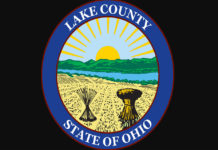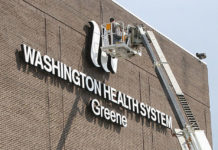The Health and Human Services Administration has announced that it will provide $485 million in grants to all 50 states to help combat the opioid epidemic and foster addiction recovery, and Pennsylvania will be receiving the fourth largest amount.
The grants were made available through the 21st Century Cures Act, bipartisan legislation that passed in December 2015. The first of two rounds of funding will be provided by the act and will be administered by the Substance Abuse and Mental Health Services Administration through State Targeted Response to the Opioid Crisis Grants.
The amount allocated to each state was determined by a variety of factors. According to Pennsylvania Physician General Rachel Levine, MD, the state received such significant funding thanks to their high-quality proposal, as well as a significant overdose crisis that she identifies as “the biggest public health care crisis in Pennsylvania right now.”
The Center for Disease Control and Prevention identified Pennsylvania as one of the states that experienced a statistically significant increase in death rates from a drug overdose from 2014 to 2015. In 2016, the state worked hard to combat addiction and overdose using a variety of strategies. Levine issued a standing order for Naloxone, the life-saving opioid overdose reversal medicine, allowing any resident of the state to obtain the medication. The state also worked toward implementation of a Prescription Drug Monitoring Program (PDMP) that aims to prevent doctor shopping.
She said some of the funds would go toward expanding programs like the PDMP, as well as increasing access to addiction recovery treatment, with significant efforts to coordinate Medication-Assisted Treatment (MAT) addiction recovery programs. The goal is to create a “hub-and-spoke model that utilizes the health system’s addiction centers and their network to expand access to MAT, not only for urban but also suburban Pennsylvania,” she said.
“We’re working with providers on provider education,” Levine said. “The general term we use for the work we do with providers is opioid stewardship.” She explained that the practice runs parallel to antibiotic stewardship.
“Opioids are essential tools in our medical tool boxes,” Levine said. “However, health care providers must learn to prescribe more judiciously.”
Some funds from the grant will be directed toward further promulgation of prescriber guidelines for opioids and strategies for directing patients towards addiction recovery treatment, such as a warm handoff — the practice of referring and introducing a patient to a behavioral health specialist.
“The road to recovery can be a long one, but with the appropriate care, it can be navigated,” said Dr. Charles Cutler, president of the Pennsylvania Medical Society (PAMED). “Warm handoffs play an important role on this road to recovery. Once a substance abuse disorder is identified, it’s critical for that patient to be placed into the care of experts specializing in treatment and recovery.”
In order to ensure that people receive addiction recovery treatment when needed, PAMED offers Referral to… (continue reading)
















